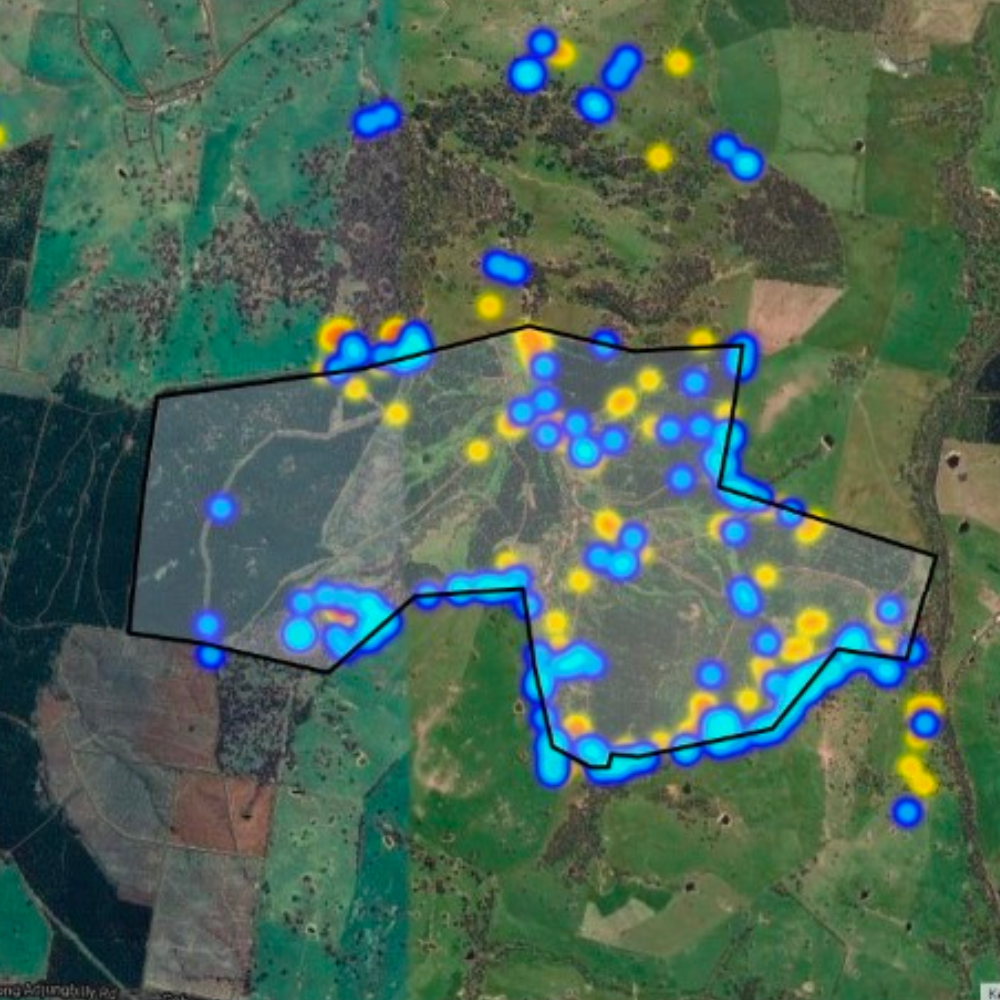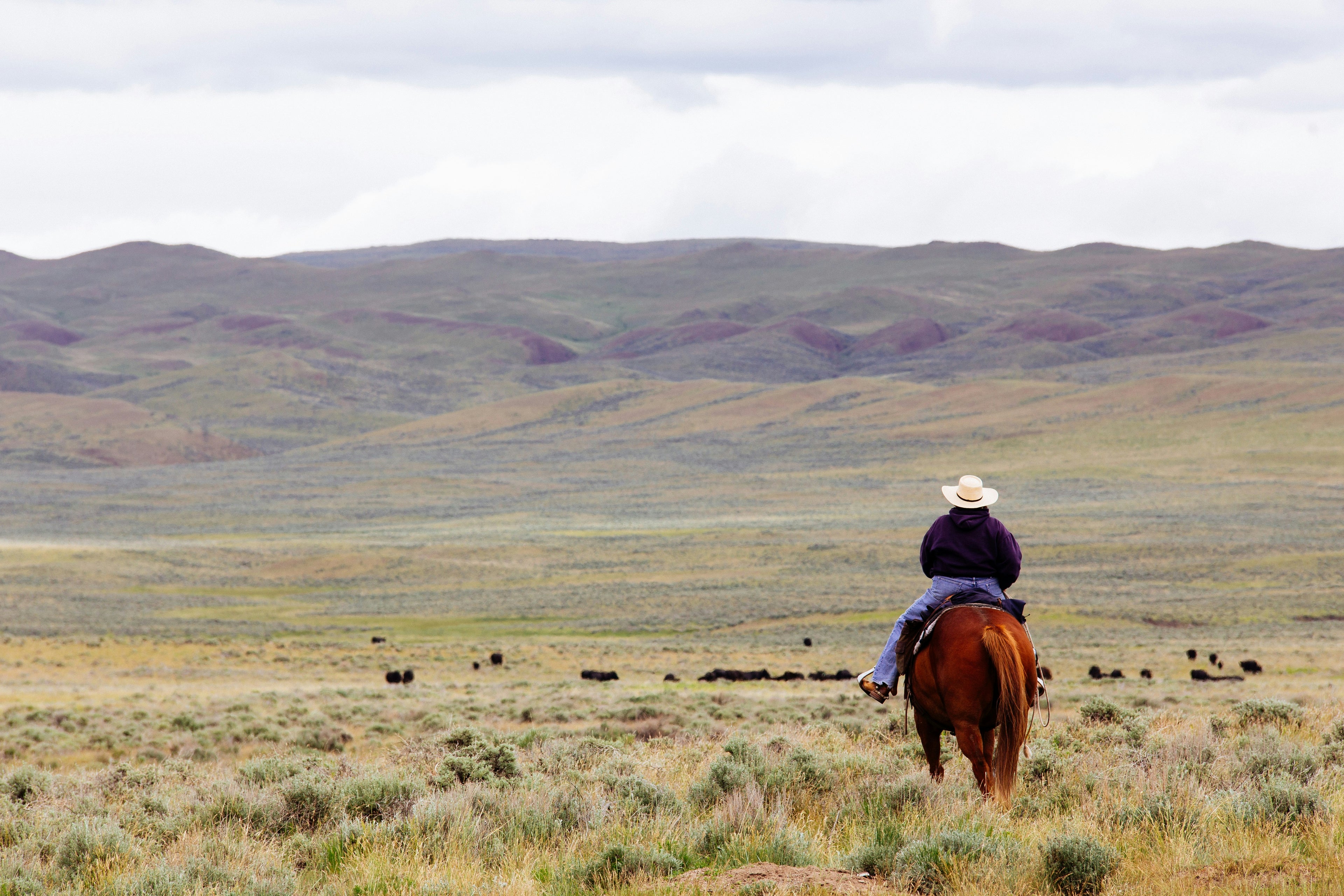
Animal Management with Data
CERES TAG introduces an approach to animal management designed for a broad audience including primary producers, ranchers, conservationists, researchers, and government.
Smart sensors offer automated and continuous data on animal location and behaviour, empowering users with insights that lead to informed decisions, enhanced productivity, better land management and increased profitability.
For Farmers and Ranchers
-
Real-time Location Tracking
Keep tabs on every animal, ensuring their safety and optimizing pasture management.
-
Health Monitoring
Early detection of illnesses, reducing mortality rates and veterinary costs.
-
Behaviour Analysis
Insights into feeding and breeding behaviours to enhance herd productivity.
For Conservationists
-
Endangered Species Protection
Track movements and health, contributing vital data for conservation strategies.
-
Habitat Usage Insights
Understand how wildlife interacts with their environment, supporting habitat preservation efforts.
-
Biodiversity Support
Monitor multiple species seamlessly, aiding in comprehensive conservation initiatives.
For Researchers
-
Detailed Behaviour Studies
Access to unprecedented data on animal habits and social structures.
-
Data-Driven Research
Robust, reliable data collection to support scientific discoveries and advancements.
For Government Organisations
-
Livestock Management Support
Tools for monitoring and managing livestock health and location.
-
Policy Development
Data to inform policy making and enforce animal welfare standards.
Scope Reporting and Emissions
CERES TAG's innovative technology plays a pivotal role in enabling comprehensive emissions reporting across Scope 1, 2, and 3 categories.
For Scope 1 emissions, directly related to on-farm activities, CERES TAG data provides detailed insights into livestock behaviour and management practices, helping identify and reduce methane emissions through optimized feeding strategies and herd health management.
In terms of Scope 2 emissions, which involve indirect emissions from the energy purchased and used by the farms, insights gained from CERES TAG can guide energy-efficient practices by scheduling operations during off-peak hours and improving overall resource management.
Lastly, for Scope 3 emissions, which include all other indirect emissions within a company's supply chain, CERES TAG's data assists in monitoring the supply chain's carbon footprint.
By analyzing data including feed sourcing and other associated activities, CERES TAG enables stakeholders to implement more sustainable practices, reducing environmental impact and enhancing sustainability reporting accuracy. This holistic approach to emissions tracking and management underscores CERES TAG's commitment to environmental stewardship and its crucial role in supporting the agriculture sector's transition towards more sustainable operations.
Unlocking Holistic Pasture Management
Combining CERES TAG's detailed animal data with other technological data sources enables multi-dimensional analysis of animal health and behaviour in relation to their environment.
Some examples of how utilising technologies alongside CERES TAG can provide exponential value:
- Satellite pasture mapping can reveal pasture health and biomass, allowing for informed grazing management that is complemented by CERES TAG's real-time livestock tracking.
- In-paddock weighing systems can work alongside CERES TAG’s Pasture Feed Intake algorithms to monitor and optimise dry-matter feed intake to weight gain, and better estimate methane emissions.
- Water point monitors, when synced with CERES TAG data, ensure that animals have adequate access to water sources, optimising water resource management.
- Weather data can help predict and mitigate the impact of adverse weather conditions on animals and pasture quality, facilitating proactive management decisions.
This holistic approach not only enhances operational efficiency and sustainability but also supports the well-being of livestock and wildlife, illustrating the profound impact of technology in transforming traditional practices into smart, data-driven operations.

Optimise Productivity
CERES TAG goes beyond traditional animal management solutions, offering a suite of benefits that cater to the diverse needs of our clients. Whether you're looking to optimise farm productivity, protect endangered species, conduct cutting-edge research, or develop informed policies, CERES TAG provides the data and insights necessary for success.